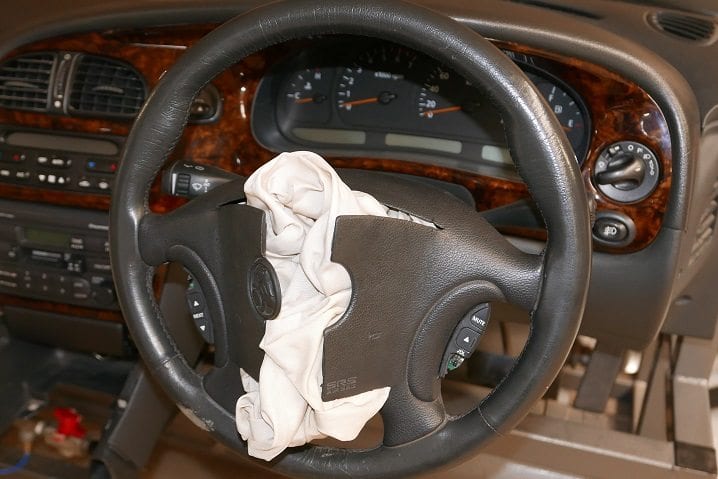The Wall Street Journal reported last month that automakers Toyota, Subaru, Mazda and BMW had to pay claims of over $550 million—largely for inconveniencing consumers due to airbag recalls. This settlement follows a January 2017 settlement in which Takata agreed to plead guilty in U.S. court and pay a settlement of $1 billion dollars. (Stillman and Friedland covered the Takata airbag issue in an earlier post; Takata was aware that the airbags were faulty yet knowingly and criminally continued to produce them.)
The most recent claims to be paid out by the automakers are to cover “lagging repairs and financial losses associated with the air bags”. Automaker claims will not cover personal injury claims for death and injury. Automakers are to receive $850 million from the Takata settlement and only $150 million will be available for personal injury claims.
The total number of vehicles with faulty airbags was estimated at 34 million in 2015, but the number is now estimated to be about 42 million. Additional recalls were announced as recently as this week, making this a still-growing problem. The National Highway Transportation Safety Administration (NHTSA) website has full information on affected makes and models.
Replacement is important because the faulty airbags, manufactured by Japanese firm Takata, have a detonation system which could explode on inflation, effectively spraying shrapnel-like metal parts at vehicle occupants. Eleven deaths and nearly 200 injuries have resulted from airbag activation.
Recalls affect many car owners with the potential for injury, inconvenience and lost time. Consumers may wait months to get dealers to replace defective airbags, due to a parts shortage. Dealerships have sent out notices to owners stating that the faulty airbags can injure or even kill car occupants, but tell owners to keep using the car. Dealers should provide rental cars until the problem is fixed but the large number of needed replacements means many owners will not get a rental car. Consumers are having a hard time navigating product risk, limited availability of rental cars, insurance issues and heavy security deposit fees.
The shortage of replacement parts means that automakers have determined who gets priority treatment. If you live in a hot and humid climate, your vehicle will be a priority for replacement, since exposure to humidity increases detonation problems. On the other hand, if your car was previously “fixed” with more faulty parts, you are now on the bottom of the waiting list. Federal authorities have set a target date in 2019 for full replacement of all faulty airbags.
Stillman and Friedland would like to offer a few tips for airbag safety as we all wait for this expanding problem to resolve. Beyond the issue of explosive parts, there are two basic issues for airbag safety to consider:
Maintain a safe distance of at least 10 inches from your chest to the driver airbag, located in the steering wheel. Adjust seat accordingly. If you have a senior parent who hunches forwards on the steering wheel, you may want to deactivate the airbag. Getting hit in the face, close impact to the chest, and brittle bones are a bad combination.
Never carry a child under 12 in the front seat with an activated airbag. It’s best to keep kids in the back seat.
Do the benefits of airbags outweigh their risks and the current inconvenience of replacing defective equipment? How we feel about the issue is a moot point since Federal regulators have determined that airbags are the way to go.







